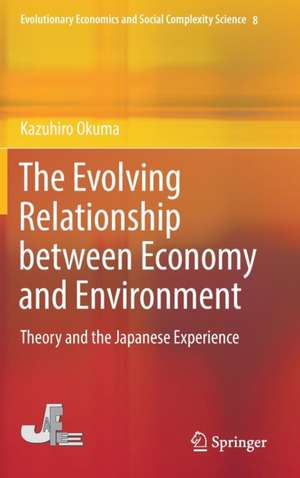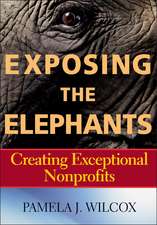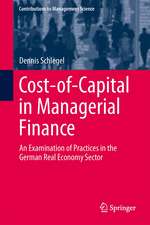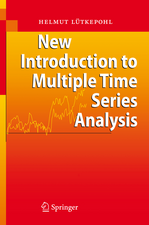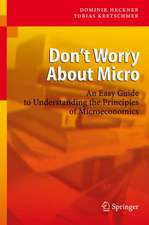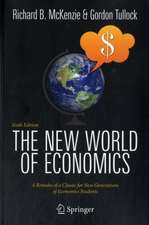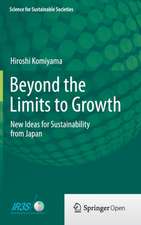The Evolving Relationship between Economy and Environment: Theory and the Japanese Experience: Evolutionary Economics and Social Complexity Science, cartea 8
Autor Kazuhiro Okumaen Limba Engleză Hardback – 7 apr 2017
Orthodox environmental economics usually understands environmental issues under the rules of market economy, while environmental sciences subordinate economy to physical constraints of the environment. Instead of these hierarchical visions, this book recognizes economy and the environment as co-evolving systems.
The theoretical framework is elaborated based on the régulation and post-Keynesian theories combined. An idea of three-dimensional factors—capital, labor, and the environment—leads to conceptual and mathematical models, which will be applicable to wider analyses.
Using this framework, Japanese history is analyzed as a typical example ofenvironmental policy development. Historical transformations of environmental policies and growth regimes are explained using indices and econometric analysis. Experiences of strict regulations with positive economic impacts are also identified.
These works lead to some interesting implications, which include mechanisms, the possibility, and conditions of "green growth''. This book proposes a new approach by bridging the gap between evolutionary–institutional economics and environmental economics, which should be stimulating to them both and possibly open the door for a new research avenue.
| Toate formatele și edițiile | Preț | Express |
|---|---|---|
| Paperback (1) | 689.79 lei 6-8 săpt. | |
| Springer Nature Singapore – 12 dec 2018 | 689.79 lei 6-8 săpt. | |
| Hardback (1) | 695.85 lei 6-8 săpt. | |
| Springer Nature Singapore – 7 apr 2017 | 695.85 lei 6-8 săpt. |
Din seria Evolutionary Economics and Social Complexity Science
- 18%
 Preț: 792.34 lei
Preț: 792.34 lei - 15%
 Preț: 643.84 lei
Preț: 643.84 lei - 18%
 Preț: 723.21 lei
Preț: 723.21 lei - 18%
 Preț: 742.61 lei
Preț: 742.61 lei - 24%
 Preț: 634.35 lei
Preț: 634.35 lei - 15%
 Preț: 639.08 lei
Preț: 639.08 lei - 18%
 Preț: 730.16 lei
Preț: 730.16 lei - 15%
 Preț: 706.48 lei
Preț: 706.48 lei - 15%
 Preț: 583.61 lei
Preț: 583.61 lei - 18%
 Preț: 784.30 lei
Preț: 784.30 lei - 18%
 Preț: 721.01 lei
Preț: 721.01 lei - 15%
 Preț: 527.15 lei
Preț: 527.15 lei - 15%
 Preț: 644.63 lei
Preț: 644.63 lei - 15%
 Preț: 523.22 lei
Preț: 523.22 lei - 15%
 Preț: 638.24 lei
Preț: 638.24 lei - 18%
 Preț: 728.60 lei
Preț: 728.60 lei -
 Preț: 388.90 lei
Preț: 388.90 lei - 18%
 Preț: 737.26 lei
Preț: 737.26 lei - 15%
 Preț: 696.35 lei
Preț: 696.35 lei - 15%
 Preț: 690.11 lei
Preț: 690.11 lei - 15%
 Preț: 692.24 lei
Preț: 692.24 lei - 18%
 Preț: 1006.24 lei
Preț: 1006.24 lei - 24%
 Preț: 570.15 lei
Preț: 570.15 lei -
 Preț: 388.72 lei
Preț: 388.72 lei - 18%
 Preț: 789.52 lei
Preț: 789.52 lei - 18%
 Preț: 1004.81 lei
Preț: 1004.81 lei - 15%
 Preț: 642.68 lei
Preț: 642.68 lei - 18%
 Preț: 730.65 lei
Preț: 730.65 lei - 18%
 Preț: 729.53 lei
Preț: 729.53 lei - 18%
 Preț: 732.52 lei
Preț: 732.52 lei
Preț: 695.85 lei
Preț vechi: 818.64 lei
-15% Nou
Puncte Express: 1044
Preț estimativ în valută:
133.17€ • 138.52$ • 109.94£
133.17€ • 138.52$ • 109.94£
Carte tipărită la comandă
Livrare economică 15-29 aprilie
Preluare comenzi: 021 569.72.76
Specificații
ISBN-13: 9789811040993
ISBN-10: 9811040990
Pagini: 150
Ilustrații: IX, 140 p. 28 illus.
Dimensiuni: 155 x 235 x 10 mm
Greutate: 0.39 kg
Ediția:1st ed. 2017
Editura: Springer Nature Singapore
Colecția Springer
Seria Evolutionary Economics and Social Complexity Science
Locul publicării:Singapore, Singapore
ISBN-10: 9811040990
Pagini: 150
Ilustrații: IX, 140 p. 28 illus.
Dimensiuni: 155 x 235 x 10 mm
Greutate: 0.39 kg
Ediția:1st ed. 2017
Editura: Springer Nature Singapore
Colecția Springer
Seria Evolutionary Economics and Social Complexity Science
Locul publicării:Singapore, Singapore
Cuprins
Part I: Overview.- Chapter 1: Introduction.- Chapter 2: Evolutionary and Institutional Approach to Economy and the Environment.- Part II: Theoretical Analysis.- Chapter 3: Socioeconomic System as Reproductions of Economy, Humans and the Environment.- Chapter 4: Formalizing Triple Reproductions and Environmental Costs.- Chapter 5: Institutional Coordination in the Economy-environment Nexus and the Growth Regime.- Chapter 6: A Kaleckian Model for Economy-environment Analysis.- Part III: Long-term Transformation in Japan.- Chapter 7: Overview of Long-term Trends of the Economy-environment Nexus in Japan.- Chapter 8: Econometric Analysis of the Impacts of Environmental Measures on Growth.- Chapter 9. Interpreting the Historical Transformation.- Part IV: Conclusion.- Chapter 10: Searching for a Vision into the Future: Evolutionary Economy-environment Coordination.- Appendix: Data Sources and Estimation Methods.
Notă biografică
Kazuhiro Okuma, Tohoku University, Japan
Textul de pe ultima copertă
This book sheds new light on the relationship between economy and the environment by approaching the issue from evolutionary and institutional economics. Building a framework of theory and empirical analysis, it provides an in-depth perspective on how economic growth and environmental policy interact and historically evolve.
Orthodox environmental economics usually understands environmental issues under the rules of market economy, while environmental sciences subordinate economy to physical constraints of the environment. Instead of these hierarchical visions, this book recognizes economy and the environment as co-evolving systems.
The theoretical framework is elaborated based on the régulation and post-Keynesian theories combined. An idea of three-dimensional factors—capital, labor, and the environment—leads to conceptual and mathematical models, which will be applicable to wider analyses.
Using this framework, Japanese history is analyzed as a typical example of environmental policy development. Historical transformations of environmental policies and growth regimes are explained using indices and econometric analysis. Experiences of strict regulations with positive economic impacts are also identified.
These works lead to some interesting implications, which include mechanisms, the possibility, and conditions of "green growth''. This book proposes a new approach by bridging the gap between evolutionary–institutional economics and environmental economics, which should be stimulating to them both and possibly open the door for a new research avenue.
The theoretical framework is elaborated based on the régulation and post-Keynesian theories combined. An idea of three-dimensional factors—capital, labor, and the environment—leads to conceptual and mathematical models, which will be applicable to wider analyses.
Using this framework, Japanese history is analyzed as a typical example of environmental policy development. Historical transformations of environmental policies and growth regimes are explained using indices and econometric analysis. Experiences of strict regulations with positive economic impacts are also identified.
These works lead to some interesting implications, which include mechanisms, the possibility, and conditions of "green growth''. This book proposes a new approach by bridging the gap between evolutionary–institutional economics and environmental economics, which should be stimulating to them both and possibly open the door for a new research avenue.
Caracteristici
Proposes a new theoretical framework to analyze economy and the environment by using régulation and post-Keynesian theories combined Shows by empirical study of Japanese history how economic growth and environmental policies have been co-evolving Identifies mechanisms of “green growth”, clarifying its possibility and conditions through theoretical and econometric analysis
